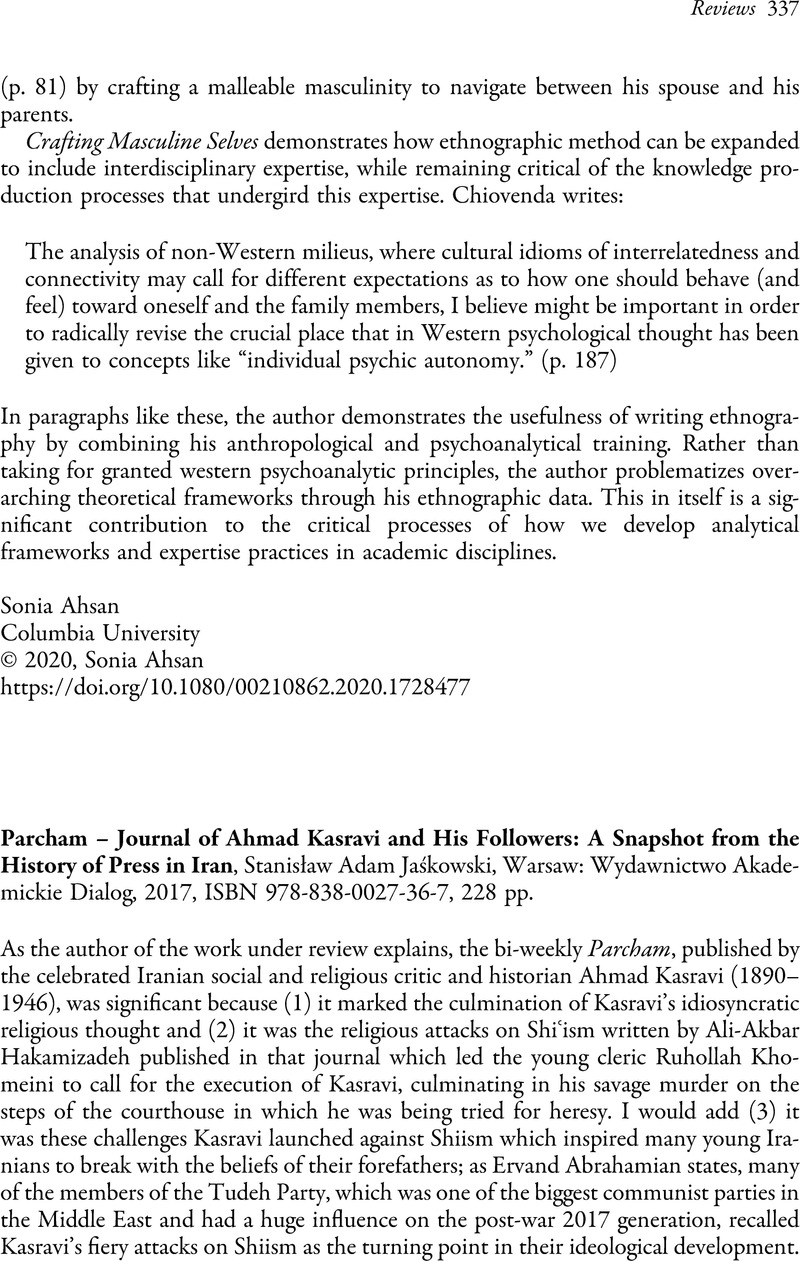No CrossRef data available.
Published online by Cambridge University Press: 01 January 2022

1 Mojtahedi, Mahdi, Taqizadeh: Rowshangari-ha dar Mashurtiyyat-e Iran, Tehran: Tehran University Press, 1357 (1978), p. 318Google Scholar, footnote 3.
2 For earlier studies on Kasravi in Polish see: S. Jaśkowski, “Farhang ast ja nejrang (Czy to kultura, czy to oszustwo) Ahmada Kasrawiego—pismo w obronie rozumu, krytyka mistycyzmu” [“Farhang Ast Yā Neyrang” of Ahmad Kasravi—the defense of reason, criticism of mysticism], Ruch Filozoficzny 67 (2010): 405–8; S. Jaśkowski, “Ahmad Kasrawi, pierwsza ofiara rewolucji” [Ahmad Kasravi, the first victim of the revolution], Przegląd Orientalistyczny, no. 1–2 (236–237) (2011): 77–85; R. Rusek-Kowalska (trans.), “Co mówi Hāfez” [What does Hāfez say?], in A. Krasnowolska, R. Rusek-Kowalska, and M. Rzepka (eds.), Irańskie drogi do nowoczesności [Iranian paths towards modernity], Kraków, 2014, pp. 85–91; R. Kanarkowski (trans.), “Apel do uczonych europejskich i amerykańskich” [A message to the scholars of Europe and America], in ibid, pp. 93–106; K. Lubowiecka, “Pamiętnik Ahmada Kasrawiego jako źródło informacji o życiu Irańczyków na początku XX wieku” [The memoir of Ahmad Kasravi as the source of information about the life of the Iranians in the early 20th century], unpublished MA thesis, Warszawa, 2000.